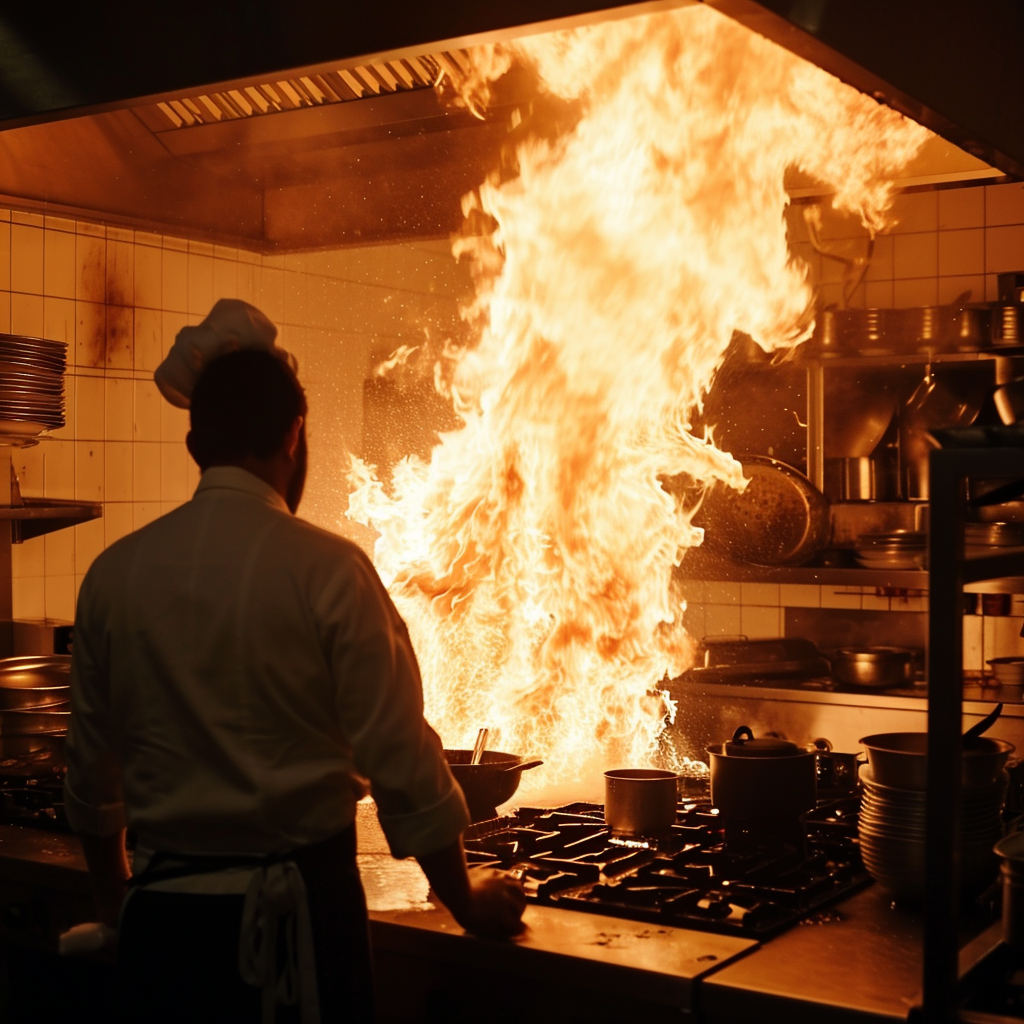Fire safety is a pivotal aspect of managing a commercial building, particularly when it involves complex environments like kitchens, where the risk of a fire outbreak is heightened. In the UK, stringent laws and regulations mandate the implementation of robust fire safety measures to protect both property and lives. Understanding and complying with these fire safety laws is non-negotiable for business owners who bear the responsibility for the well-being of their occupants.
Smoke Detectors in Commercial Buildings
Smoke detectors serve as the first line of defense against potential fires by alerting occupants to the presence of smoke. These devices come in various forms, such as ionisation detectors, which are quick to identify fast-flaming fires, and optical detectors, which are better at detecting slow-burning or smoldering fires. Dual-sensor smoke detectors combine both mechanisms for comprehensive detection. Moreover, there are detectors that integrate smoke detection with heat or carbon monoxide alarms, and they can be either wired directly to the electrical system or operate wirelessly.
Where to Install Smoke Detectors
The effectiveness of smoke detectors largely depends on their installation and proper coverage throughout the building. As stipulated in the Regulatory Reform (Fire Safety) Order 2005, commercial buildings must comply with specific regulatory requirements regarding fire safety protocols. Different types of buildings might have varied needs, but as a general rule, detectors should be installed on ceilings, especially in larger areas that may require multiple devices. It is also essential for the smoke detection system to be connected to a central control panel and to include manual call points to enable individuals to raise an alarm manually if required.
Fire Risk Assessment in Commercial Buildings
Conducting regular fire risk assessments is not only a legal obligation but a practical measure to ensure the safety of those within commercial premises. These assessments involve several critical steps, such as identifying potential hazards, people at risk, and evaluating how to reduce these risks. Findings are recorded and an action plan is outlined, with periodic reviews and updates to the assessment to guarantee ongoing protection.
Smoke Detector Testing and Maintenance
Regular testing and upkeep are vital to maintaining the functionality and reliability of smoke detectors. Monthly testing, battery replacements when necessary, and thorough cleaning to prevent malfunctions are part of routine maintenance. Moreover, professional servicing and repairs are required to ensure that any issues can be identified and rectified promptly.
Fire Alarm Types, Grades, and Categories
Fire alarm systems can be categorized as either conventional or addressable, with addressable systems providing specific information about the location of a fire. Grading of fire alarms from A to F denotes the level of complexity and integration within the building, with A being the most comprehensive. Categories M, L, and P reflect the extent of protection provided, with Category M requiring manual operation and Categories L and P offering automated detection in various capacities.
Fire Alarm Regulations for Business Owners in the UK
Business owners must ensure they have an appropriate fire detection and warning system in place, in line with UK regulations. Besides daily visual checks for any issues, fire alarms should be tested weekly and at least one comprehensive service by a qualified professional is mandated annually. All tests and any issues encountered should be documented in a fire alarm logbook for record-keeping and compliance purposes.
Related Questions
When delving into the specifics of fire safety standards, businesses in the UK look to the British fire safety Standard (BS 5839) and the European standard (EN 54) for guidance on fire safety protocols. The aforementioned Regulatory Reform (Fire Safety) Order 2005 is the cornerstone of fire safety law in the UK, and it outlines the responsibilities of business owners. The British standard for commercial fire alarm systems is detailed under BS 5839, whereas EN 54 is dedicated to fire detection and fire alarm systems within the European context.
Conclusion
Adhering to fire safety regulations in commercial buildings is not only obligatory under UK law but is also essential for the safeguarding of assets and individuals. A vigilant approach to fire safety through a well-maintained fire detection system significantly contributes to preventing fire outbreaks and mitigating their impact should they occur. Commercial kitchens, with their unique fire risks, are no exception and must conform to the rigorous standards set forth to ensure continuous safety for all occupants.


Leave a Reply